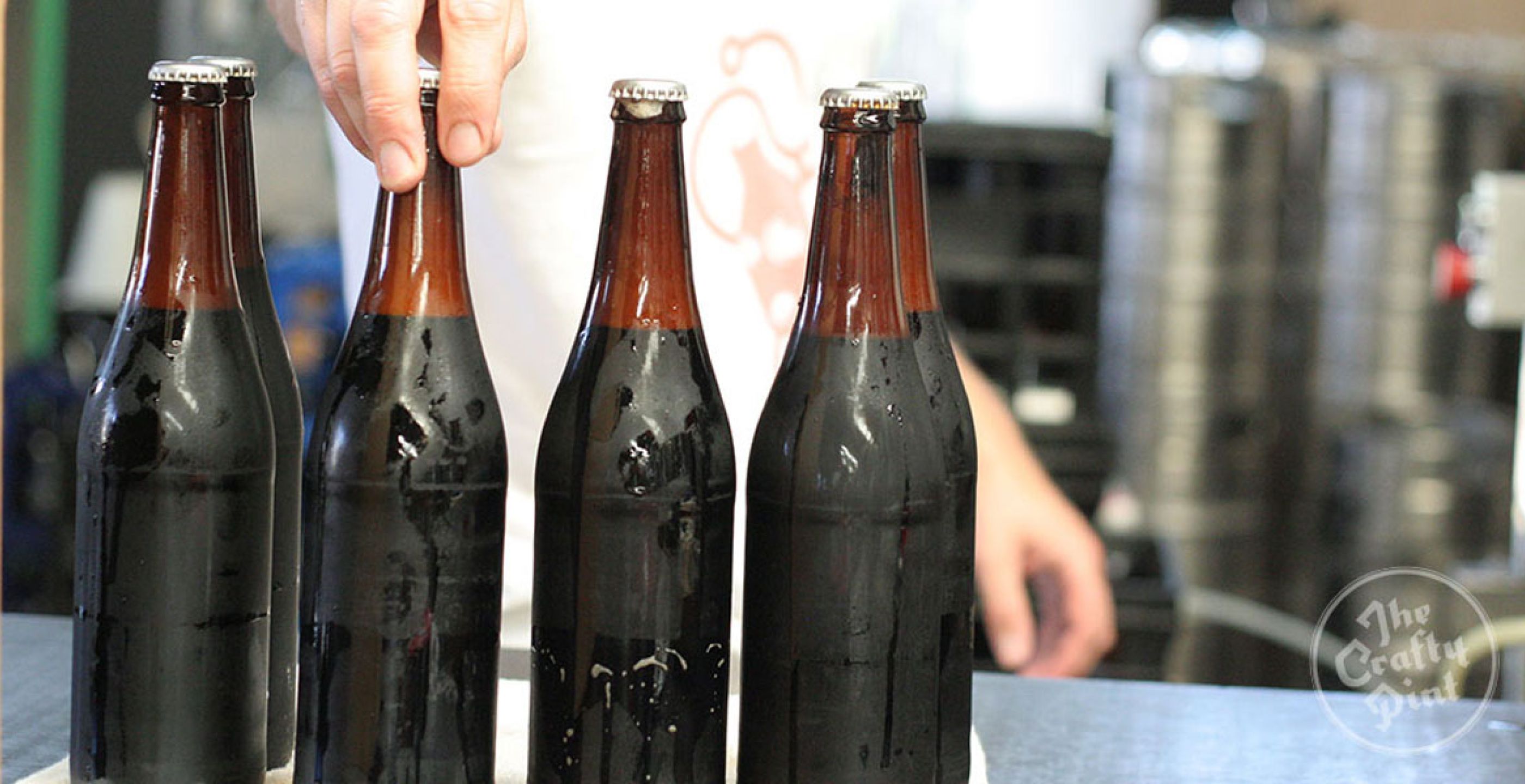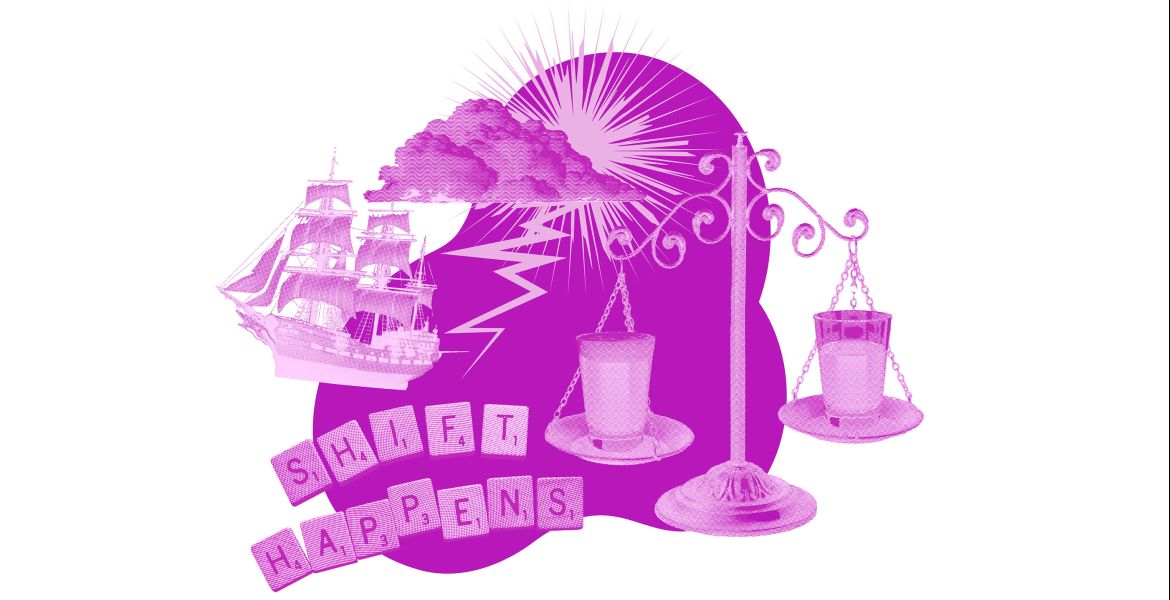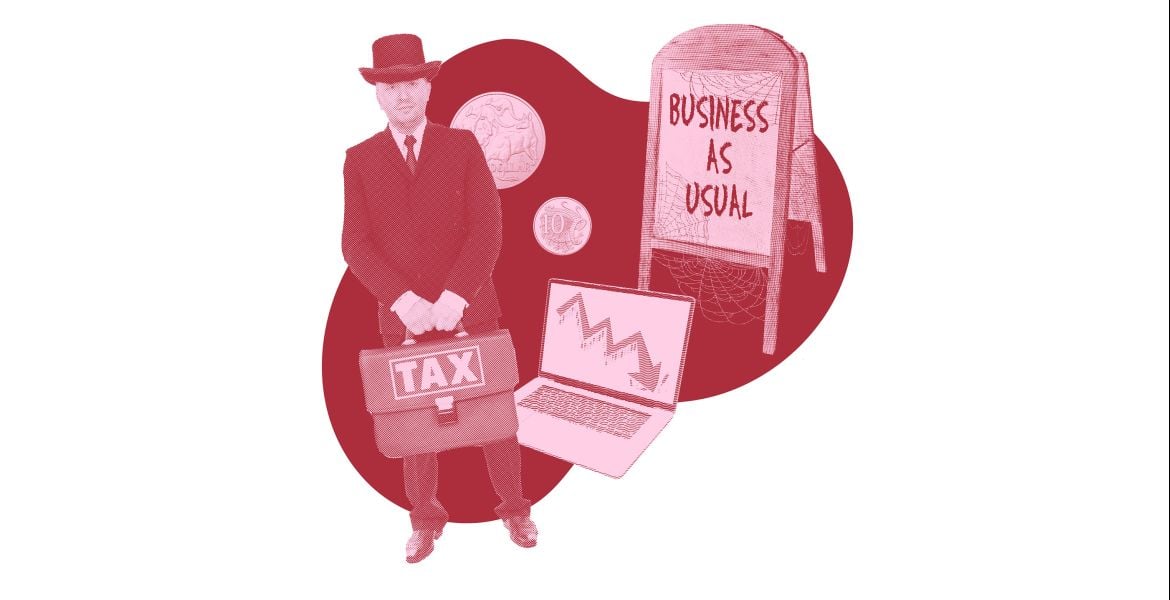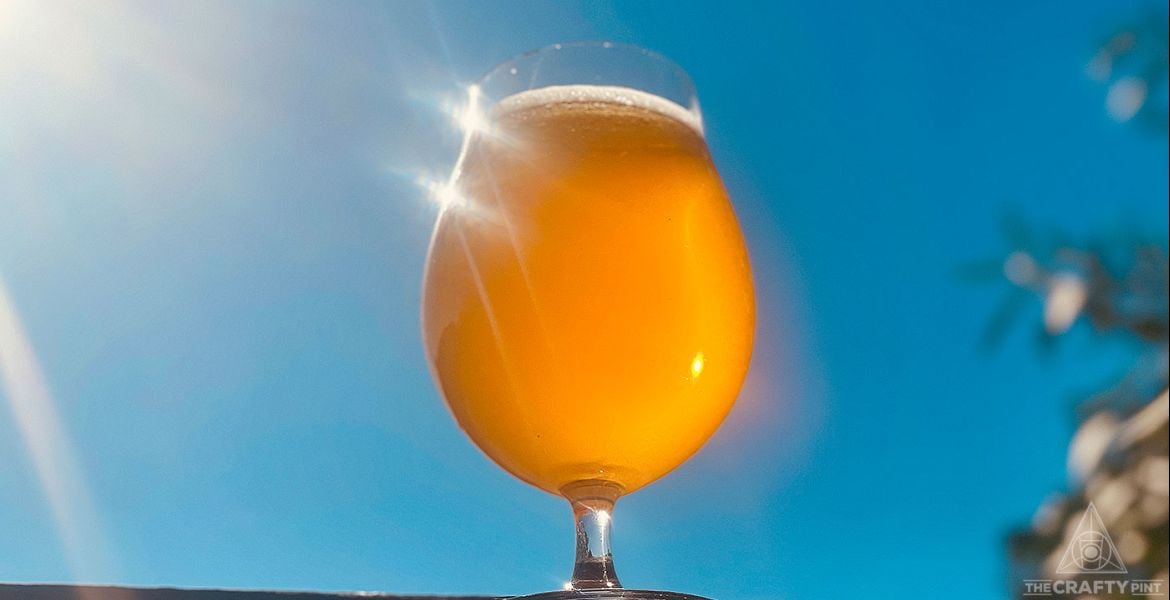Yesterday, we launched a new series, The Secret Brewer, in which an anonymous brewer laid out their concerns about gypsy and contract brewing. Today, brewers from here and overseas respond to the points raised in the article.
Stu McKinlay – Yeastie Boys
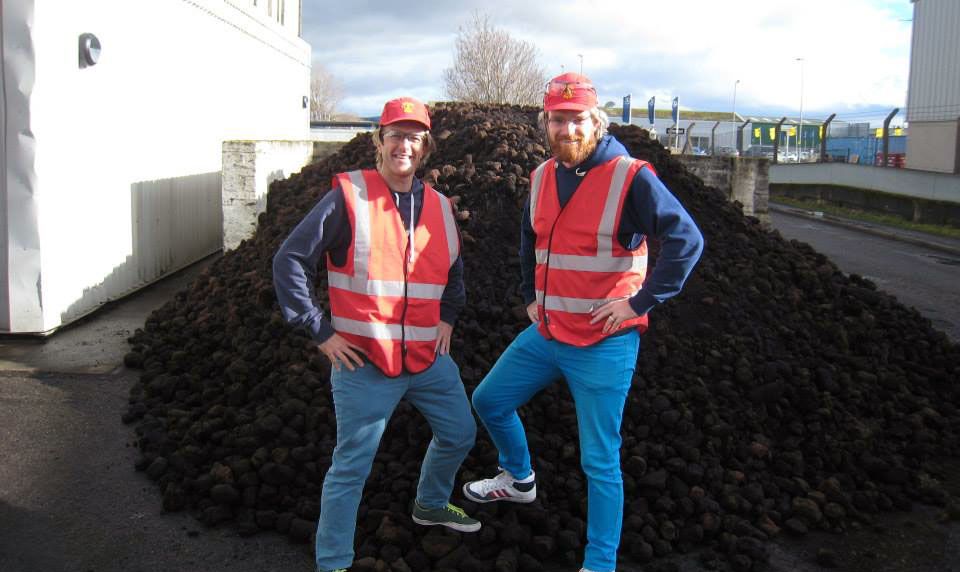
New Zealand's Yeastie Boys need little introduction. Since they launched themselves into the hearts of their country's beer lovers with hoppy porter Pot Kettle Black, they've continued to push boundaries, pervert styles, fire off puns and pay homage to their musical heroes through beer on an ever grander scale.
"Benevolent Dictator" Stu McKinlay has been living in the UK to build the brand in Europe and the Boys recently started brewing beer for the Australian market at Nomad Brewing in Sydney's Northern Beaches. It's fair to say a lack of a brewery to call their own hasn't held them back.
Why did you start a beer brand?
I was a homebrewer who was sick of my friends, and especially my brother, coming around to fill up flagons of beer rather than actually visiting me. There was also a dearth of interesting seasonal beers on the market at that time, a load of breweries with excess production, and I had the feeling there were plenty of people who wanted something a little different.
Do you believe the number of gypsy brewers and contract brands is saturating the market and poses a threat to the future of the craft beer industry?
No, I don't think so. In the end, there are dozens of things that we should be concerned about before we worry about contract brewers. Contract brewers, like owners of physical breweries, get into the business for all sorts of reasons.
I'd guess, from my travels, that the contract brewers I've come across are actually more open and positive about creating a vibrant and diverse beer scene than a good portion of the owners of physical breweries. And, in the end, beer still has to be made in a physical brewery... contract brewers aren't conjuring up beer out of thin air. We may not put down the deposit on stainless but our beer does cost more to make. Very simply, it is like being a renter instead of a homeowner.
Is it too easy to launch a brand today?
Not at all... it was relatively easy when we started Yeastie Boys (nine years ago) but, whether you own stainless or just some ideas, it's getting harder and harder all the time. Breweries and brands are growing faster than there are taps and shelf space to house the beers.
Should people launching beer brands have spent some time working in the industry or studying beer and brewing?
I'm not one for setting any sorts of rules, and I think anyone can do what they want in this regard, but having some sort of background certainly helped us (and I'm sure it will help others in the future).
I was heavily involved in the beer industry before we launched Yeastie Boys. I'd sat on the Executive Committee for the Brewers Guild of New Zealand, I owned a homebrew business, I was a founding member and treasurer of the consumer group Society of Beer Advocates (SOBA), and was the head steward for the Brewers Guild of NZ Beer Awards. It meant I had a lot of contacts when we kicked off (pretty much all of the several dozen people in craft beer at that time).
By going down the contract or gypsy brewing route, do you risk losing control over quality and consistency?
You get in what you put in. We use one brewery in NZ, so they know our beer and our requirements. I think you'll see, as contract brewers mature, that they tend to head down this route. Unless you're a single person, travelling the earth brewing with the best breweries in the world, you need to somehow make the exercise repeatable and cost effective. After all, we are running businesses.
Do you think having brand owners entering the fray without knowledge of beer poses a risk to the development of the beer scene?
People come from all walks of life to join the beer scene. Someone from a sales and marketing background, with a really good contract brewer, could build an amazing brand of delicious beer that I would prefer to drink than a beer from a long serving brewer with their own equipment.
The scene is becoming as diverse as the people who drink the beer. There are all sorts of risks in running a business and the actual brewing and packaging side are only a fraction of it in the brewing world. Think of how many people a brewery making a million litres a year will employ (probably 20 to 40) and only a handful, at most, will work in the brewing side).
Do you think there is a greater tendency to fudge a beer's provenance from gypsy and contract brewers as opposed to brewers with their own breweries?
For sure! We're well aware of this and, although we are very open, we still get hassled about it. Our bottles and cans are very clear where they are made but we still get people hassling us about tap badges not saying where the beer is brewed. No matter what you do, someone is going to hassle you.
There are certainly some contract brewers who are specifically being unclear about this... many of them may own stainless in one area, with a geographical reference in their name, and be contract brewing some of their beer elsewhere. There's a spectrum of provenance authenticity, just like there is with almost everything else.
Should all brewing companies be made to state where their beer is brewed and by whom on their packaging?
I wouldn't be overly adverse to this but, in general, I'm not a proponent of creating rules and regulations. If a consumer really wants to know where their beer comes from, they can choose to purchase beer that clearly states this. We're actually using this to our advantage, I think, in clearly stating that our beer is brewed locally. For example, a person could drink three different versions of our Gunnamatta (one in can and two in bottle) and clearly see that one is brewed in Invercargill, one is brewed in Aberdeenshire, and one is brewed in Sydney. Getting those three versions into one room might be a trickier matter!
Steve Martin – Cavalier Brewing
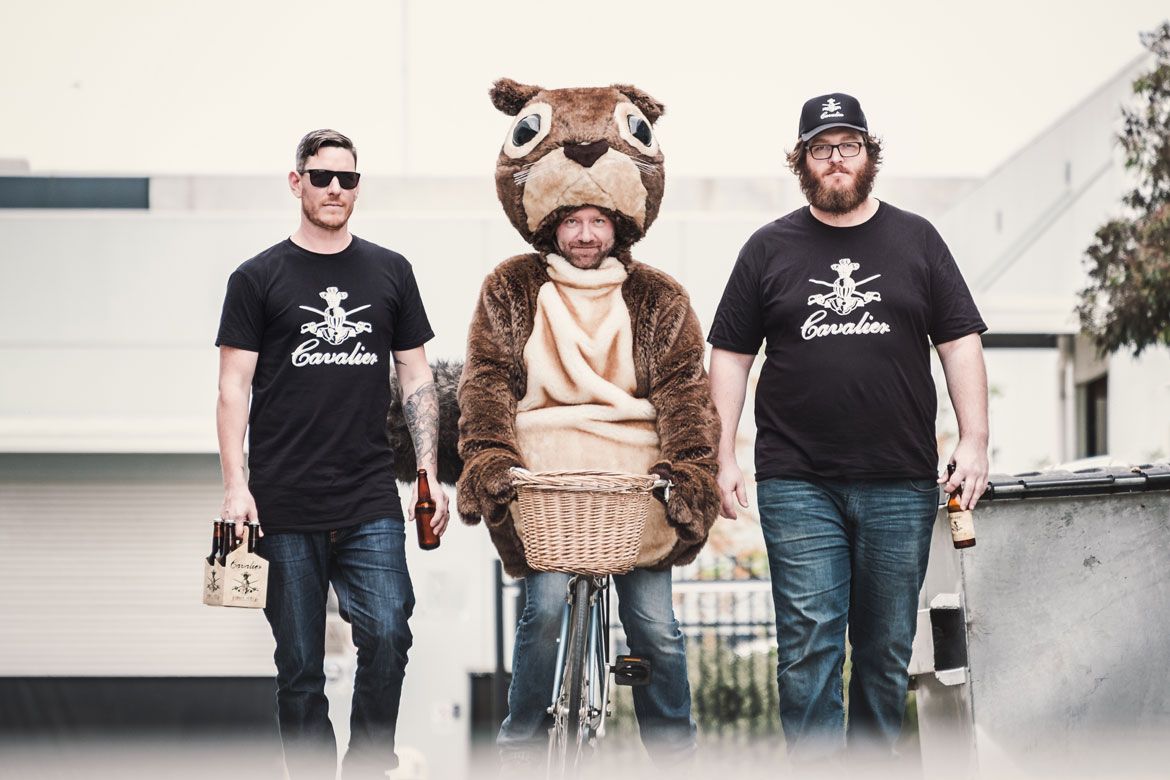
Steve Martin, above centre, founded Cavalier Brewing with Heath Shirtcliffe (left) and Andrew Cronin (right) in 2011. As well as developing their own range of beers, since 2013 the threesome has operated a brewery in Melbourne's west where they have invited many brewing companies – gypsies, contractors and those with their own breweries seeking additional capacity – through their doors.
The likes of KAIJU!, Killer Sprocket, BrewCult and Hop Nation have all used the brewery, with many former customers using it as a springboard to launch their business before opening their own facility.
Do you believe the number of gypsy brewers and contract brands is saturating the market?
No. I believe the number of gypsy brewers and contract brands is an excellent opportunity for the craft beer industry. There are too many poor quality and/or faulty Australian craft beers in the market currently. Many of these are manufactured by well established brands with their own breweries.
Gypsy brewers and contract brands add much needed competition to a market that clearly requires a little more to weed out the poor performers. Competition is a beautiful thing that ultimately results in a better experience for the consumer.
Our economic structure is one of natural selection that favours consumers and drives a greater standard of living for all. Having a love of beer alone does not and should not entitle you to run a successful brewing business. You are required to perform if you wish to succeed in business. You will always succeed if you make good beer so there is nothing to fear with more competition.
On the contrary, a lack of competition leads to poor quality beer in the marketplace and damages the brand “Craft” generally. We should encourage more competition and strive to make beer worthy of consumer choice. It is best for the industry overall if brands that can’t perform exit the market.
Is it too easy to launch a brand today?
This is a strange question. It should be easy to launch a brand. Anything else is anticompetitive. Protectionism is an ugly thing and consumers suffer in the long run.
Should people launching beer brands have spent some time working in the industry or studying beer and brewing?
Obviously not. Why should this be a requirement? The only goal is to produce the best quality beer possible for the consumer. Whether someone has spent some time working in the industry or studying beer and brewing is completely irrelevant. There is nothing stopping someone with no industry experience launching a brand of the best quality beer in the world. Conversely, there are plenty of poor quality beers produced by brands with lots of industry experience.
It would be folly to exclude players who could potentially make a valuable contribution to the industry by raising the bar on quality. Brands owned by people with no industry experience can and do employ experts to assist. Brewers are notorious for their poor business acumen. The industry benefits greatly when outsiders with more business knowledge and experience participate, thus raising the standard for the rest of us to perform.
By going down the contract or gypsy brewing route, do brewers risk losing control over quality and consistency?
Potentially. Partnering with the right brewery will mitigate many of these risks and provide potential to improve the product. Indeed, we assist our contract and gypsy brewers with their recipes routinely. We would never make a beer that was sub-standard for risk that it would damage our brand and theirs. We employ the same techniques and methods of manufacturing that we do for our own beers.
Do you think there is a greater tendency to fudge a beer's provenance from gypsy and contract brewers as opposed to brewers with their own breweries?
Maybe in the past. Not today. Our contract and gypsy brewers are proud of the fact we make their beers and boast about it freely.
Brands will obviously declare where the beer was made if it comes from a reputable source as it will help sell the product. If the beer does not come from a reputable source, then it won’t be declared, the quality will be poor and the brand will not perform.
Should all brewing companies be made to state where their beer is brewed and by whom on their packaging?
Absolutely not. It’s completely irrelevant. The last thing this industry needs is more regulation. There are laws in place to protect consumers from false and misleading branding already.
Do you think there's been a danger of Cavalier losing focus on your own brand through brewing for so many other businesses?
Absolutely not. On the contrary, the quality of our products is what attracts other businesses to work with us so must be maintained at the highest level. Our brand is our reputation and reference for what we can make for others. We continuously learn from the people we work with so our products improve also.
Sam Haldane – Shenanigans Brewing
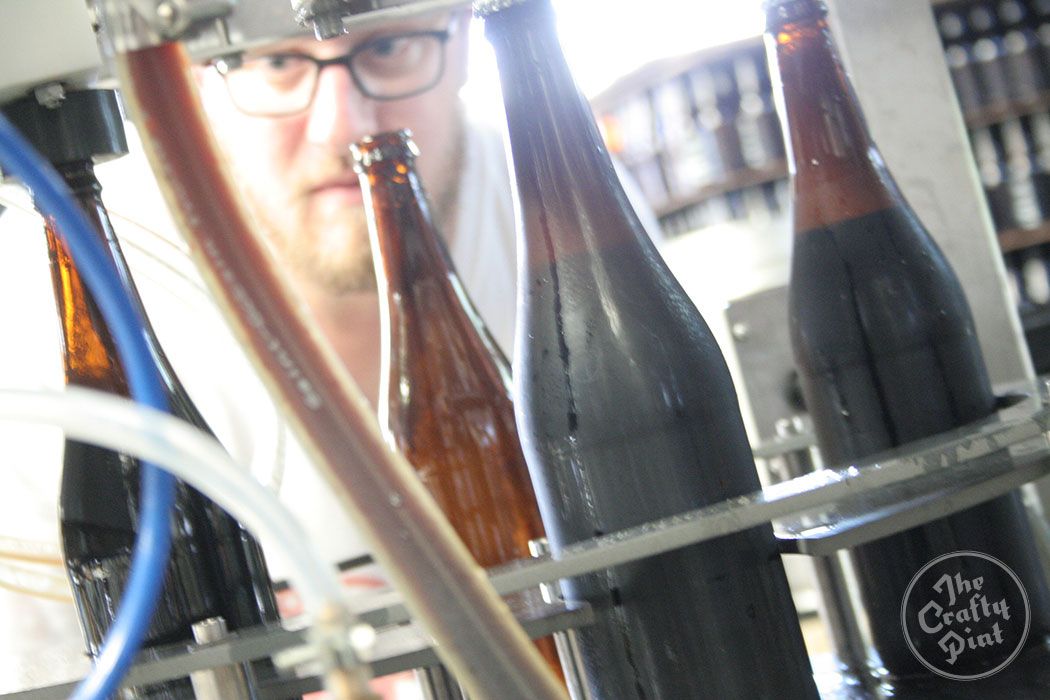
Sam Haldane (pictured above during the bottling of an early batch) launched Shenanigans Brewing with the marvellously named Dan Beers on Craft Beer Rising in 2014. The gypsy brewer has since released a series of well received beers, from flagship pale ale The Winston to innovative brews such as Red Sky IPA and The Dude's Abide Ale – a White Russian inspired beer.
In our Best New NSW Beers of 2016 article, Shenanigans was awarded the non-existent title of “Gypsy Brewer They’d Most Like To See Have Their Own Brewery” by our panel.
Why did you start a beer brand?
As passionate homebrewers for many years, it was a dream of ours to share our beer with people on a commercial scale. The range of beers available at the time was great, but we thought we could bring some more imaginative/creative ideas to the table.
Do you believe the number of gypsy brewers and contract brands is saturating the market and poses a threat to the future of the craft beer industry?
No I don't think so. There are a lot out there, and more appearing all the time, but I don't think it's a thread to the future of beer in this country. Ultimately, the punter will vote with their drinking habits, and gypsy/contract brands with lower quality beer and/or questionable ethics (eg faking provenance) will not succeed.
Gypsy and contract brewers also help support smaller brewers by paying to use their spare capacity.
Is it too easy to launch a brand today?
I wouldn't say it's super easy. Even without building a physical brewery, there is a fair bit of red tape to negotiate. There's also some difficulty these days securing regular brewing slots, as existing breweries are getting busier, and more gypsy/contract brewers are emerging, meaning space is limited. Without regular brewing slots at the same brewery, it's hard to maintain consistency of quality and product.
Should people launching beer brands have spent some time working in the industry or studying beer and brewing?
I think if people want to do their brand justice, it would benefit them to have some experience in the industry. For me, the beer comes first and is the most interesting part of the business, so I would be wary of anyone starting a beer brand that doesn't have any brewing experience or education.
By going down the contract or gypsy brewing route, do you risk losing control over quality and consistency?
Yes, there is a risk that you can get bumped from a brewery you trust and respect, and have an agreement with if they get too busy, or if they go out of business. It's really important for us to trust and have a good relationship with the brewers and brewery owners that we use, for this reason.
We try to keep the same beers at the same breweries, but sometimes this isn't possible, and can affect quality and consistency. We also try to be as hands on as possible, but we can't be present for every part of the brewing, conditioning and packaging process. That said, most smaller breweries have several brewing staff these days, so you need to be able to trust people to do the right thing for the beer even if you have your own brewery.
Do you think having brand owners entering the fray without knowledge of beer poses a risk to the development of the beer scene?
I think it's important for people to have knowledge of beer. If they want people to take them and their beer seriously, they need to be able to represent their brand knowledgeably at events and festivals etc. I think the risk here is that people taking their first foot steps in the craft beer world may encounter some less than genuine people and sub-par quality beers, turning them off craft beer for good.
Do you think there is a greater tendency to fudge a beer's provenance from gypsy and contract brewers as opposed to brewers with their own breweries?
Yes, I see more gypsy/contract brewers fudging provenance, to the detriment of the industry in my opinion. This is something we are always open and honest about; honestly, I don't see a reason to be any other way.
Should all brewing companies be made to state where their beer is brewed and by whom on their packaging?
I think it's a good idea and would prevent people from fibbing, but may be tricky for some gypsy or contract brewers logistically. For example, there are quite large minimum runs on bottle labels and cans, and some brewers move their beer between breweries for various reasons, which would mean different cans/labels are required.
Thanks to those who agreed to take part in today's response article. There appears to be much agreement across both days – mainly over the need for quality, education and honesty, all areas in which concerns can as easily be translated to the operators of stainless steel breweries.
As much as anything, however, the two features taken together should offer insight and advice for those wishing to enter the industry as a brewer without a home.
We'll be back with another Secret Brewer two-parter in the coming weeks – on an issue that tends to generate more heated discussion than any other.



